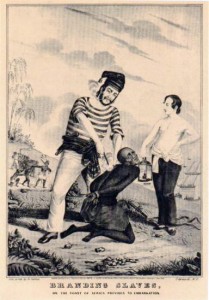1Ti 4:1 In light of the godly roles Paul described for men and women in chapter 2 and the qualifications for church leaders in chapter 3, what evidences do we see today that people have fallen away from the faith? Is it significant that it is only here and in regard to apostasy that the Spirit is said to have spoken explicitly? What other evidence do we find in the Scripture that the Spirit has spoken so explicitly in this regard? See Deut 31:26-29, 32:15-18, Mat 24:4-5, 11-13, 2 Thess 2:3,5, 2 Tim 3:1-5, 13, 4:3-4, 2 Pet 2:1-2, Jude 1:17-19. From Paul’s words here in 1Ti 4:1, what do we learn is the ultimate source of those “strange doctrines” he mentioned in 1Ti 1:3? Is Satan’s greatest work accomplished overtly through the occult or covertly through deception? See Genesis 3:1-6,13, 1 Kings 22:19-23, 2 Corinthians 11:3-4, 13-15, 2 Thessalonians 2:9-10, 2 John 1:7, Revelation 12:9. Does Paul say that those who fall away from the faith do so because in their innocence they are completely taken in by deception? Note: “pay attention” means to give heed, devote, or occupy oneself with something; see also 2 Tim 4:3-4. What does this teach us about the danger of occupying ourselves with speculative teachings that may sound spiritual but for which there is no clear scriptural support? Instead of paying attention to the demon-inspired speculations of men, to what should we give our attention? See 1Ti 4:13.
1Ti 4:2 In the previous verse Paul admonishes Timothy with the importance of opposing the “strange doctrines” that were being advocated in Ephesus (1Ti 1:3), reminding him that it was precisely by giving heed to such doctrines of demons that the Spirit had warned some would fall away from the faith. In this verse, how does he describe the human agents responsible for the spread of such false teaching? What word describes their religious veneer? What word describes their true nature? See Jn 8:44. Which is worse: those who lie about temporal, carnal, and fleshly matters, or those who lie about eternal, spiritual matters? See 1 Jn 1:6, 2:4, 4:20, Rev 2:2, 3:9. What is the end of all liars? See Rev 21:8,27, 22:15. Note: “sear with a branding iron” translates a Greek word from which we get our word “cauterize”; what effect does the sear of a hot iron have upon one’s flesh, and what does it teach us about the effect of unrepentant sin upon one’s conscience?  For what purpose is something branded? Whose brand of ownership is placed upon an unrepentant sinner’s conscience? See Rev 13:16. What effect does Satan’s brand have upon the countenance of his slaves? See Is 3:9, Jer 3:3, 5:3, 6:15, Eze 16:30. How does the seal of ownership applied to God’s bond-slaves differ from that applied to Satan’s bond-slaves? See Deut 6:6-8, 11:18, Rom 12:2, Eph 4:23, Rev 7:3, 14:1, 22:4. What effect does the seal God puts upon His people have upon their countenance? See Ex 34:29, 2 Cor 3:7-8, 18, Ecc 8:1, Mat 13:43, Acts 6:15. In regard to the bond-slaves of Satan, what corresponds to the frontals of the word of God which the bond-slaves of God keep ever before their tender conscience? See 1Ti 4:1, 2 Tim 4:3-4.
For what purpose is something branded? Whose brand of ownership is placed upon an unrepentant sinner’s conscience? See Rev 13:16. What effect does Satan’s brand have upon the countenance of his slaves? See Is 3:9, Jer 3:3, 5:3, 6:15, Eze 16:30. How does the seal of ownership applied to God’s bond-slaves differ from that applied to Satan’s bond-slaves? See Deut 6:6-8, 11:18, Rom 12:2, Eph 4:23, Rev 7:3, 14:1, 22:4. What effect does the seal God puts upon His people have upon their countenance? See Ex 34:29, 2 Cor 3:7-8, 18, Ecc 8:1, Mat 13:43, Acts 6:15. In regard to the bond-slaves of Satan, what corresponds to the frontals of the word of God which the bond-slaves of God keep ever before their tender conscience? See 1Ti 4:1, 2 Tim 4:3-4.